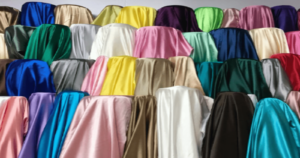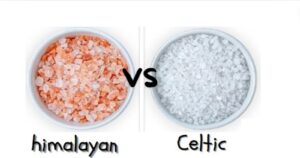Cotton and polyester are two distinct types of fabrics frequently utilized in the textile industry. Cotton, a natural fiber obtained from the seedpod of the cotton plant, is renowned for its breathability, absorbency, and comfort against the skin. On the other hand, polyester is a synthetic fiber crafted from petroleum-based polymers, valued for its robustness, wrinkle resistance, and swift drying characteristics. Cotton is highly favored for its plushness and suitability in warm climates, while polyester shines in terms of longevity and simple upkeep. These fabrics cater to diverse needs and can be blended to harness their individual strengths.
cotton sheets
In households around the world. Each type of sheet offers its own set of advantages and considerations.
Cotton sheets, with their natural fibers, are prized for their breathability and moisture-wicking properties. This makes them ideal for warmer climates or for those who tend to sleep hot. Additionally, cotton sheets tend to soften over time with each wash, providing a cozy and inviting feel against the skin. They are also well-known for their hypoallergenic properties, making them suitable for individuals with sensitive skin or allergies.
On the other hand, polyester bed sheets are recognized for their durability and resistance to wrinkles. They hold their shape well and are less likely to shrink compared to cotton sheets. Polyester sheets are also known for their easy maintenance – they typically require less ironing and are quick to dry after washing. This makes them a practical choice for those with a busy lifestyle or for use in guest bedrooms.
Moreover, a blend of cotton and polyester in bed sheets can combine the strengths of both fabrics. The resulting sheets may have enhanced durability and wrinkle resistance while still maintaining the comfort and breathability provided by cotton.
Ultimately, the choice between cotton and polyester bed sheets depends on personal preferences and specific needs. Some may prioritize the natural, soft feel of cotton, while others may value the longevity and low-maintenance aspects of polyester. Additionally, blended sheets offer a versatile option for those seeking a balance between these qualities.
Health benefits of cotton sheets
Cotton sheets offer several potential health benefits, primarily related to comfort, breathability, and hypoallergenic properties. Here are some of the potential health benefits of using cotton sheets:
- Breathability: Cotton is a natural fiber that allows air to circulate, which helps regulate body temperature. This can be especially beneficial for those who tend to get hot at night or experience night sweats.
- Hypoallergenic: Cotton is less likely to cause allergic reactions compared to synthetic materials. It’s a good option for people with sensitive skin or allergies.
- Moisture Absorption: Cotton sheets can absorb moisture from your skin, helping to keep you dry. This can be particularly useful for people prone to sweating during sleep.
- Reduced Skin Irritation: The natural, soft texture of cotton is less likely to cause skin irritation or friction-related issues. It’s gentle on the skin, making it suitable for those with sensitive skin conditions.
- Chemical-Free: High-quality, organic cotton sheets are typically free from harmful chemicals or synthetic additives, reducing the risk of skin irritation or chemical sensitivities.
- Non-Toxic: Cotton is a natural and non-toxic material, making it a safe option for those concerned about exposure to chemicals found in some synthetic materials.
- Eco-Friendly: Organic cotton farming practices often involve fewer pesticides and chemicals, which can reduce environmental impact and potential exposure to harmful substances.
- Durability: High-quality cotton sheets are known for their durability, which means they can last longer and potentially save you money in the long run.
- Easy to Clean: Cotton is generally easy to clean and maintain, making it a practical choice for those who prefer low-maintenance bedding.
- Regulates Humidity: Cotton can help regulate humidity levels in your bed, which can be especially beneficial for those living in areas with high humidity or during seasonal changes.
- Reduces Fungal Growth: Cotton’s breathable nature and moisture-wicking properties can help prevent the growth of fungi and molds, which can be an issue with less breathable materials.
It’s important to note that while cotton sheets offer these potential benefits, individual experiences can vary. The quality of the cotton, thread count, and specific manufacturing processes can all impact how a set of cotton sheets perform. Additionally, personal preferences and any specific health concerns should also be taken into consideration when choosing bedding.
Cotton Sheet compare to polyester sheet
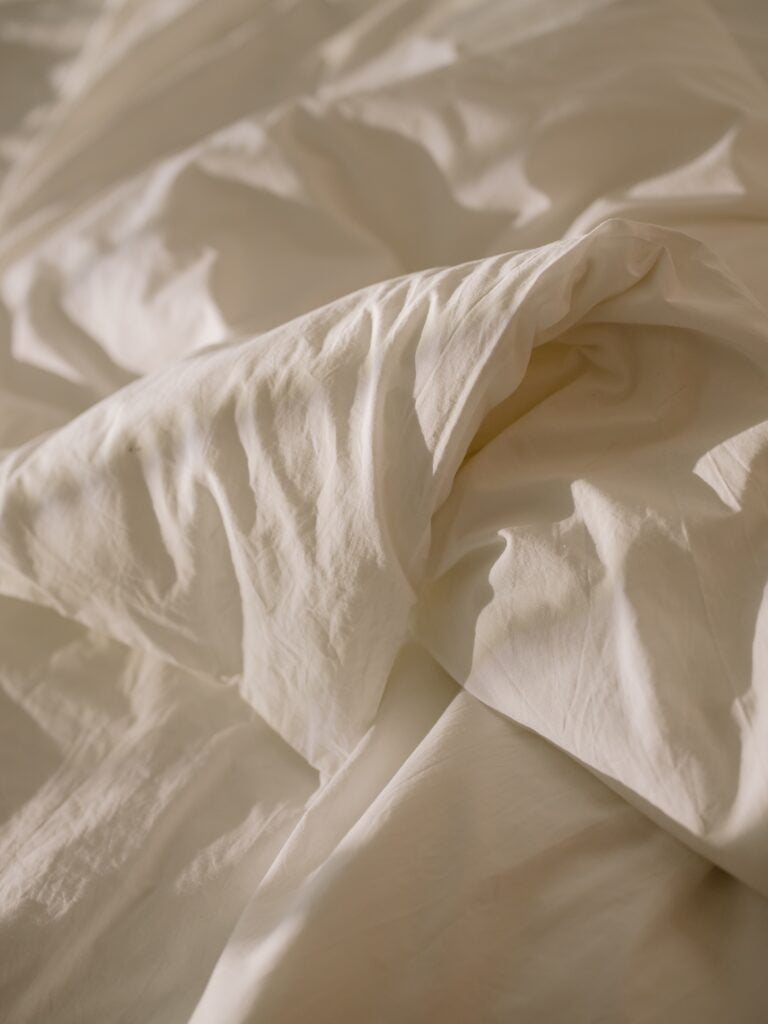
COTTON SHEET
Here’s a comparison between cotton sheets and polyester sheets:
- Material: Cotton sheets are made from natural fibers derived from the seedpod of the cotton plant.
- Breathability: Cotton is highly breathable, allowing air to circulate around the body. This makes it an excellent choice for warm climates or for those who tend to sleep hot.
- Absorbency: Cotton is known for its high absorbency, which means it can wick away moisture from the body, providing a comfortable and dry sleep environment.
- Comfort: Cotton sheets are soft and tend to become even softer over time with each wash, providing a cozy and inviting feel against the skin.
- Hypoallergenic: Cotton is naturally hypoallergenic, making it a suitable choice for individuals with sensitive skin or allergies.
- Natural Fiber: Being a natural material, cotton is biodegradable and eco-friendly

POLYESTER SHEET
Here’s a comparison between polyester sheets and cotton sheets:
- Material: Polyester sheets are made from synthetic fibers derived from petroleum-based polymers.
- Durability: Polyester sheets are highly durable and tend to hold their shape well over time. They are less likely to shrink compared to cotton sheets.
- Wrinkle Resistance: Polyester is naturally resistant to wrinkles, which means these sheets require less ironing and maintain a neat appearance.
- Quick-Drying: Polyester sheets dry quickly after washing, making them a practical choice for individuals with a busy lifestyle.
- Low Maintenance: They are easy to care for and typically require less maintenance compared to cotton sheets.
- Affordability: Polyester sheets are often more budget-friendly compared to high-quality cotton sheets.

care of cotton sheets
Maintaining cotton sheets is relatively straightforward and can help prolong their lifespan. Here are some tips for taking care of cotton sheets:
- Regular Washing: Wash cotton sheets regularly, ideally once a week or as needed. This helps remove accumulated dirt, sweat, and oils.
- Gentle Cycle: Use a gentle wash cycle to prevent excessive friction and maintain the fabric’s integrity.
- Cold Water: Wash in cold water to prevent shrinkage and preserve the color vibrancy of the sheets.
- Mild Detergent: Use a mild, bleach-free detergent to protect the fibers. Avoid using harsh chemicals or bleach.
- Avoid Overloading: Don’t overload the washing machine, as this can lead to inadequate cleaning and increased wear and tear.
- Separate Colors: Wash dark and light-colored cotton sheets separately to prevent color bleeding.
- Avoid Fabric Softeners: While fabric softeners may make fabrics feel softer, they can also reduce the absorbency of cotton. Consider using wool dryer balls for a natural alternative.
- Tumble Dry on Low: If using a dryer, opt for a low heat setting. High heat can weaken the fibers and lead to premature wear.
- Prompt Folding: Remove sheets promptly from the dryer to prevent wrinkles. Fold them neatly or put them back on the bed immediately.
- Storage: Store clean, dry sheets in a cool, dry place. Avoid storing them in direct sunlight, as it can fade the colors over time.
- Ironing (Optional): If you prefer a crisper look, iron cotton sheets on a low heat setting.
- Avoid Harsh Chemicals: Avoid using harsh chemicals or spot treatments on stains. Instead, try gentler alternatives or consult care instructions.
- Professional Cleaning: For stubborn stains or special care, consider professional cleaning services.
By following these tips, you can keep your cotton sheets looking and feeling their best for years to come.
Polyester Sheet
A polyester sheet typically refers to a bedsheet made from polyester fabric. Polyester is a synthetic fiber known for its durability, wrinkle resistance, and affordability. Here are some characteristics and considerations regarding polyester sheets:
- Material: Polyester is a man-made material derived from petroleum. It’s known for being lightweight, strong, and resistant to stretching and shrinking.
- Durability: Polyester sheets are generally more durable than natural fibers like cotton. They tend to withstand repeated washings without losing their shape or color.
- Wrinkle Resistance: Polyester sheets are less likely to wrinkle compared to natural fiber sheets like cotton. This can be a plus for people who prefer a smooth, neat appearance on their bed.
- Affordability: Polyester sheets are usually more budget-friendly compared to sheets made from natural fibers or high-end synthetic materials.
- Moisture Wicking: Polyester tends to wick away moisture, which can be beneficial for people who sweat a lot during the night. However, it may not be as breathable as natural fibers like cotton or bamboo.
- Static Electricity: Polyester sheets can sometimes generate static electricity, which can be a minor inconvenience.
- Appearance: They can have a shiny appearance, depending on the weave and finish. Some people like the sleek look, while others prefer a more matte finish.
- Hypoallergenic: Polyester is generally considered hypoallergenic, which means it’s less likely to cause allergic reactions compared to some natural fibers.
- Care Instructions: They are usually easy to care for and can often be machine washed and dried. However, it’s important to follow the care instructions provided by the manufacturer.
- Temperature Regulation: While polyester does wick away moisture, it may not be as breathable as natural fibers. This means it might not be the best choice for those who tend to get very hot while sleeping.
Remember that personal preference plays a significant role in choosing bedding. Some people love the feel of polyester sheets, while others prefer natural fibers. It’s a good idea to touch and feel the sheets before purchasing, if possible, to ensure they meet your comfort preferences.
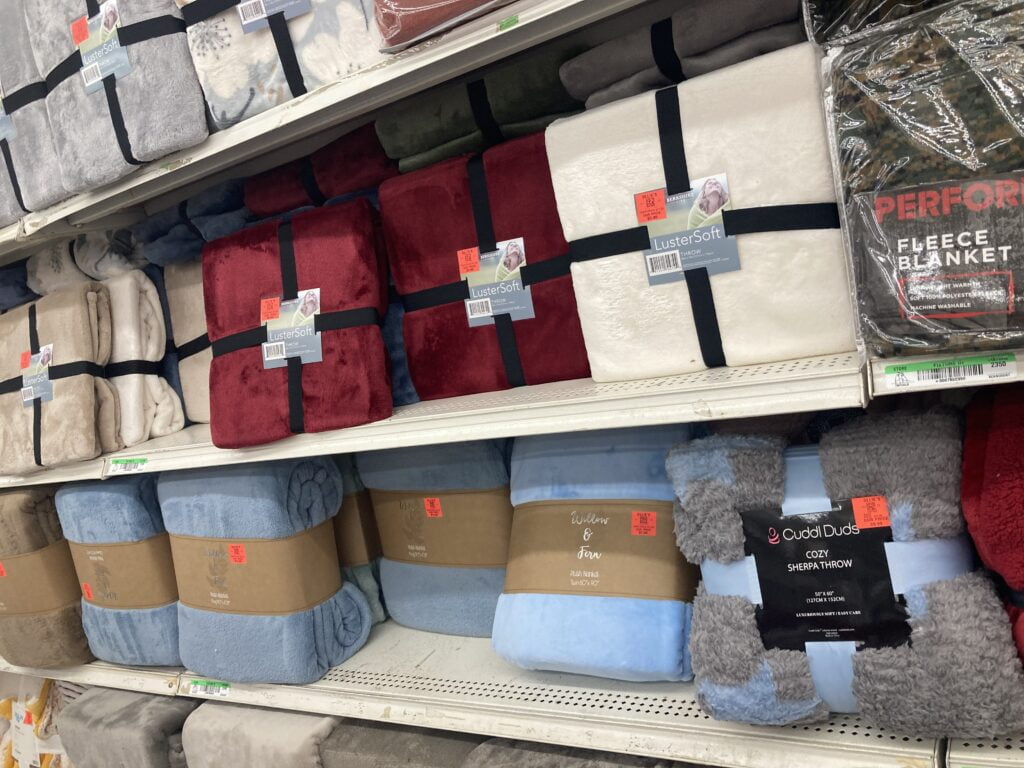
Health benefits of polyester sheets
Polyester sheets have some benefits, but they are generally considered to have fewer health-related advantages compared to natural fibers like cotton. Here are some potential benefits of polyester sheets:
- Durability: Polyester sheets tend to be more durable and resistant to wear and tear compared to natural fibers like cotton. They can withstand repeated washings and maintain their shape over time.
- Wrinkle Resistance: Polyester fabric is less prone to wrinkling than natural fibers, which means less time and effort spent on ironing or steaming.
- Stain Resistance: Polyester is less absorbent than natural fibers, making it more resistant to stains. Spills are less likely to seep into the fabric.
- Affordability: Polyester sheets are often more budget-friendly compared to high-quality natural fiber options.
Draw backs of Polyester sheet
it’s important to note that there are potential drawbacks to using polyester sheets, especially for those with specific health concerns or sensitivities:
- Less Breathable: Polyester is a synthetic material, which means it doesn’t have the same breathability as natural fibers like cotton. This can potentially lead to less effective temperature regulation and increased sweating, especially for individuals who tend to sleep hot.
- Less Absorbent: Polyester does not absorb moisture as effectively as natural fibers. This means it may not be as comfortable for those who sweat during sleep, as it may leave a damp feeling.
- Potential Allergies or Sensitivities: Some individuals may be sensitive or allergic to the chemicals used in the production of polyester fabric.
- Less Eco-Friendly: Polyester is a synthetic material derived from petrochemicals, which makes it less environmentally friendly compared to natural fibers like cotton.
- Potential for Static Electricity: Polyester sheets can generate static electricity, which can be uncomfortable or irritating for some people.
- May Retain Odors: Polyester sheets may trap odors more than natural fibers, which can be a concern for those with sensitivities to smells.
Ultimately, the choice between polyester and natural fiber sheets comes down to personal preference, budget, and specific health considerations. If you have specific health concerns or sensitivities, it’s always a good idea to consult with a healthcare professional or allergist before making a decision about bedding materials.
Video polyester vs cotton comforter
Care of polyester sheets
Maintaining polyester sheets is relatively easy, and with proper care, they can last a long time. Here are some tips on how to care for your polyester sheets:
- Washing Instructions:
- Always refer to the care label for specific washing instructions.
- Machine wash in cold or lukewarm water. Avoid hot water as it can weaken the fabric over time.
- Use a mild detergent. Avoid using bleach or fabric softeners, as they can damage polyester fibers.
- Drying:
- Polyester sheets can be tumble dried on a low heat setting. High heat can cause the fabric to weaken and shrink.
- Remove the sheets from the dryer promptly to prevent wrinkles.
- Ironing:
- Polyester sheets are generally wrinkle-resistant, but if needed, you can iron them on a low setting. Use a pressing cloth to protect the fabric.
- Avoiding Direct Sunlight:
- Prolonged exposure to direct sunlight can cause colors to fade over time. Try to keep your sheets out of direct sunlight.
- Storage:
- Store clean, dry sheets in a cool, dry place away from direct sunlight. Avoid storing them in damp or humid environments to prevent mildew.
- Avoiding Abrasive Contact:
- Be cautious with sharp objects or jewelry that could snag or tear the fabric.
- Stain Removal:
- Treat stains promptly. Blot stains with a clean, white cloth and a mild stain remover or a mixture of water and mild detergent. Avoid harsh chemicals or bleach.
- Regular Inspections:
- Periodically check your sheets for any signs of wear and tear. If you notice any fraying or damage, consider replacing them.
- Avoid Overloading the Washing Machine:
- Avoid washing too many sheets at once. Overloading the machine can lead to inadequate cleaning and increased wear and tear.
- Use of Mild Detergent:
- Opt for a gentle, pH-neutral detergent. Harsh chemicals can weaken the fibers over time.
- Avoiding Contact with Harsh Chemicals:
- Keep your sheets away from harsh chemicals, including household cleaners and cosmetics, as they can damage the fabric.
Remember, following the care instructions provided by the manufacturer is crucial. Each brand might have specific recommendations based on the type and quality of polyester used. By following these guidelines, you can keep your polyester sheets looking and feeling great for a long time.
Blend Polyester and Cotton sheets
Blended cotton-polyester sheets offer a harmonious fusion of the best qualities from both fabrics. Combining the natural breathability and softness of cotton with the durability and wrinkle resistance of polyester, these sheets strike a balance between comfort and practicality. The blend results in sheets that are not only comfortable against the skin but also capable of withstanding the rigors of daily use. This makes them an excellent choice for those seeking a versatile bedding option that marries the plushness of cotton with the low-maintenance benefits of polyester. Blended sheets are a popular choice for households looking to enjoy the best of both worlds in their bedding.
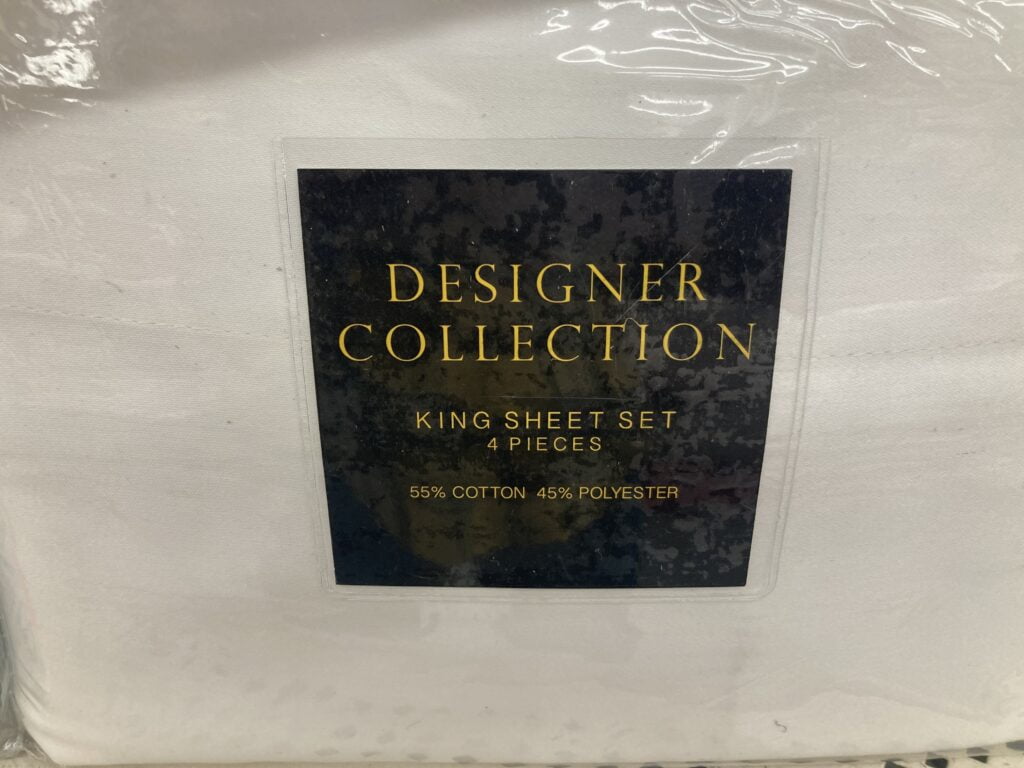
Blended Sheets (Cotton-Polyester Blend):
- Combines Strengths: Blending cotton and polyester in sheets can combine the breathability and comfort of cotton with the durability and wrinkle resistance of polyester.
- Enhanced Durability: Blended sheets are often more durable than 100% cotton sheets, making them a practical choice for long-term use.
- Balanced Maintenance: They may require less maintenance compared to 100% cotton sheets, but more than 100% polyester sheets.
Ultimately, the choice between cotton, polyester, or a blend depends on individual preferences, specific needs, and priorities such as breathability, durability, comfort, and maintenance requirements.

